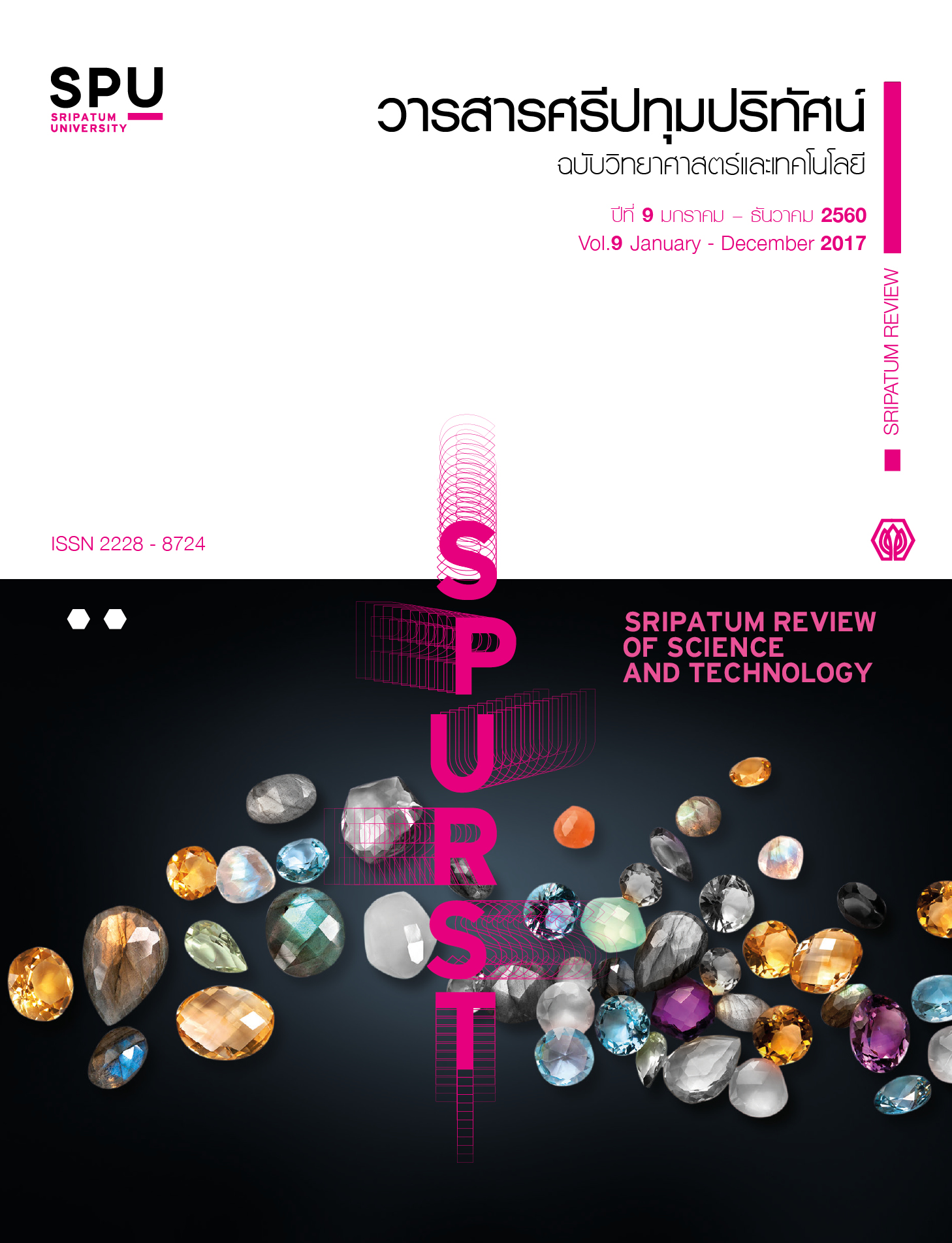GUIDELINES FOR THE CALCULATION OF SPECIFIC ENERGY CONSUMPTION (SEC) AS ENERGY PERFORMANCE INDICATOR IN TRANSPORTATION OPERATIONS
Main Article Content
Abstract
Transportation is the economic sector that consumes more than one third of Thailand’s energy consumption annually, and fuel cost typically dominates the largest portion of total transportation operation expenses. Accordingly, transportation sector becomes the focus for Thai government to achieve better energy performance according to the nation’s 20-Years Energy Conservation Plan. Since energy management strategy is a key factor to promote energy efficiency in transportation processes, energy saving target and performance indicator are needed to be defined and monitored properly using Specific Energy Consumption (SEC). Since SEC indicates the amount of energy usage per unit of activity (i.e. product or service), it can used to explain the status of energy and operational performance of transportation processes. This can lead to effective problem finding and evaluation of energy saving potential. This report explains a guideline of how to calculate SEC for transportation operation. SEC can be evaluated as the ratio between the amounts of energy used and product of transportation activity, which is travel distance (e.g. kilometer), or the value of averaged carried load-travel distance (e.g. ton-kilometer or tkm). According to limitation and understanding on data recording methodology found in most transportation service providers in Thailand, different practical guidelines are proposed, so specific energy consumption (SEC) value can be evaluated properly as an effective energy performance indicator in transportation operation.
Article Details
References
ชลธิศ เอี่ยมวรวุฒิกุล, ชวลิต มณีศรี, ธรินี มณีศรี, วัชระ ลอยสมุทร และ จักรพงศ์ พงศ์ธไนศวรรย์. (2558). “กลไกการได้มาซึ่งค่าอ้างอิงการใช้พลังงานจำเพาะในภาคการขนส่ง,” ในหนังสือรวมบทความการประชุมวิชาการระดับชาติ มหาวิทยาลัยศรีปทุม ครั้งที่ 10 ประจำปี 2558. หน้า 1644-1653. กรุงเทพฯ.
ชลธิศ เอี่ยมวรวุฒิกุล, ชวลิต มณีศรี, ธรินี มณีศรี และ กิตติกุล ปุณศรี. (2559). “การพัฒนาระบบบริหารจัดการพลังงานในภาคขนส่ง,” ในหนังสือรวมบทความการประชุมวิชาการระดับชาติและนานาชาติ มหาวิทยาลัยศรีปทุม ครั้งที่ 11 ประจำปี 2559. หน้า 1378-1388. กรุงเทพฯ.
ชวลิต มณีศรี, ธนภัทร พรหมวัฒนภักดี และ ชลธิศ เอี่ยมวรวุฒิกุล. (2560). “การประยุกต์ใช้ระบบบริหารจัดการพลังงานในภาคขนส่ง,” ในหนังสือรวมบทความการประชุมวิชาการเครือข่ายพลังงานแห่งประเทศไทย ครั้งที่ 13. หน้า 972-977. เชียงใหม่.
เป็นธิดา มณีโชติ, จันทนา จันทโร และ ไชยะ แช่มช้อย. 2554. การวิเคราะห์ประสิทธิภาพการใช้พลังงานของโรงงานควบคุม : TSIC 33, 36, 37 และ 38, วารสารวิจัยพลังงาน, ปีที่ 8 (2554/2): 12-19).
พัชรมาศ นุ่มดี, จันทนา จันทโร และ ไชยะ แช่มช้อย. 2554. การศึกษาประสิทธิภาพและตรวจติดตามการใช้พลังงานของโรงงานควบคุม, วารสารวิจัยพลังงาน, ปีที่ 8 (2554/2): 1-10).
พีรพงศ์ แก้ววิมลรัตน์ และสุทัศน์ รัตนเกื้อกังวาน. 2553. การพัฒนาแบบจำลองดัชนีการใช้พลังงานจำเพาะ ด้วยเทคนิคหน่วยเทียบเท่าในอุตสาหกรรมอิเล็กทรอนิกส์, วารสารวิจัยพลังงาน, ปีที่ 7 (2553/2): 54-65).
สถาบันวิจัยเพื่อการพัฒนาประเทศไทย. 2553. ต้นทุนการประกอบการ: รถโดยสารประจำทาง vs รถบรรทุกในประเทศไทย. รายงานทีดีอาร์ไอ, 84 (กรกฎาคม 2553), ฉบับพิเศษ.
ศูนย์วิศวกรรมพลังงาน. 2560. การหาค่า SEC.
อมรรัตน์ แก้วประดับ และพิชัย นามประกาย. (2548). “การศึกษาค่าดัชนีการใช้พลังงานจำเพาะในอุตสาหกรรมประเภทโลหะ,” ในหนังสือรวมบทความการประชุมวิชาการเครือข่ายพลังงานแห่งประเทศไทย ครั้งที่ 1, หน้า 293-298.
Pakere, I., and Blumberga, D. 2017. Energy efficiency indicators in peat extraction industry – a case study, Energy Procedia, 113 (2017): 143-150.
Nunes, J., Silva, P. D., Andrade, L. P., and Gaspar, P. D. 2014. Characterization of the specific energy consumption of electricity in the Portuguese sausage industry, WIT Transactions on Ecology and The Environment, 186: 763-774.
Janic’, M. 2014. Advanced Transport Systems Analysis, Modeling, and Evaluation of Performances. Springer. U.K.


